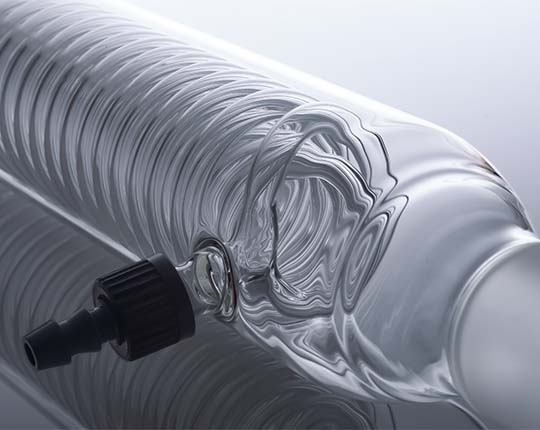
Condensers
Condensers are essential laboratory apparatus used to convert vapour into liquid through cooling. They play a crucial role in various laboratory applications, ensuring efficient condensation of vapours generated during processes like distillation and reflux.
Here are some common types of condensers used in laboratories:
Liebig Condensers: Straight-tube condensers with an inner tube through which coolant flows, providing effective surface area for condensation.
Coil, Double Coil & Jacketed Coil Condensers: These condensers feature coiled tubes or double coils for increased surface area, enhancing efficiency in cooling vapours.
Double Surface Condensers: Designed with two separate cooling surfaces to maximise condensation efficiency, suitable for high-throughput applications.
Allihn Condensers: Equipped with a series of bulbs along the length of the condenser tube, increasing the surface area for efficient cooling.
Distillate Condensers: Specifically designed for distillation processes, ensuring optimal separation and collection of distillate.
Air Condensers: Utilise ambient air for cooling purposes, typically used in setups where water cooling is not available or practical.
Jacketed Condensers: Have an outer jacket for circulating temperature-controlled fluids, offering precise control over condensation temperature.
These condensers are interchangeable and adaptable to various laboratory setups, catering to different applications and requirements. They are constructed from materials such as borosilicate glass or stainless steel, chosen for their chemical resistance and durability. Condensers enable researchers and technicians to perform experiments safely and efficiently by facilitating the controlled conversion of vapours into liquid form.